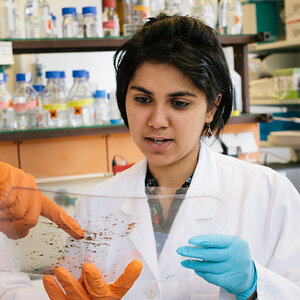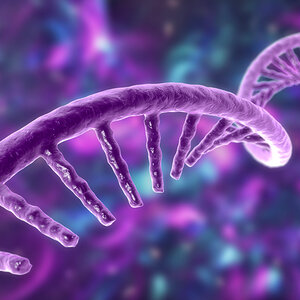UW-Madison receives $1.3 million for molecular paleontology research

The University of Wisconsin-Madison has announced a $1.3 million grant from the W.M. Keck Foundation in support of research exploring the early origins of life and its evolution.
The grant will be directed to the work of associate professor of bacteriology Betül Kaçar—described as a pioneer in molecular paleobiology—whose team combines expertise in paleontology, AI, synthetic biology, and evolution. The team aims to investigate the resilience of nitrogenase, an enzyme that has persisted across three billion years of planetary transformation. While nitrogen is abundant in the atmosphere, nitrogenase is evolutionarily unique and is the only known means by which nitrogen can be “fixed” in a biologically usable form as an essential nutrient to produce amino acids, proteins, nucleic acids—all critical to life on Earth.
In collaboration with Seoul National University professor Martin Steinegger, the team will use large-scale sequence data analysis to resurrect and characterize a vast library of extinct and artificial enzyme sequences and map them to globally significant events in Earth’s geological history.
“Traditional approaches for reconstructing the history of life depend on the study of geological remains that offer a woefully incomplete picture of ancient life,” said Kaçar. “Our transformative approach will create a whole new sub-discipline combining protein evolution, microbiology, and paleobiology.”
(Photo credit: Getty Images/vchal)








